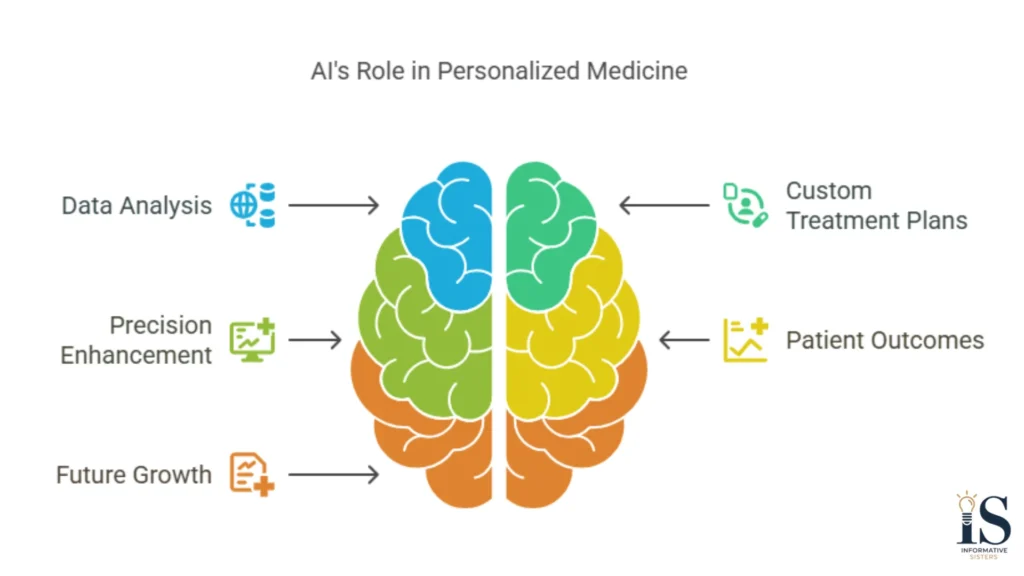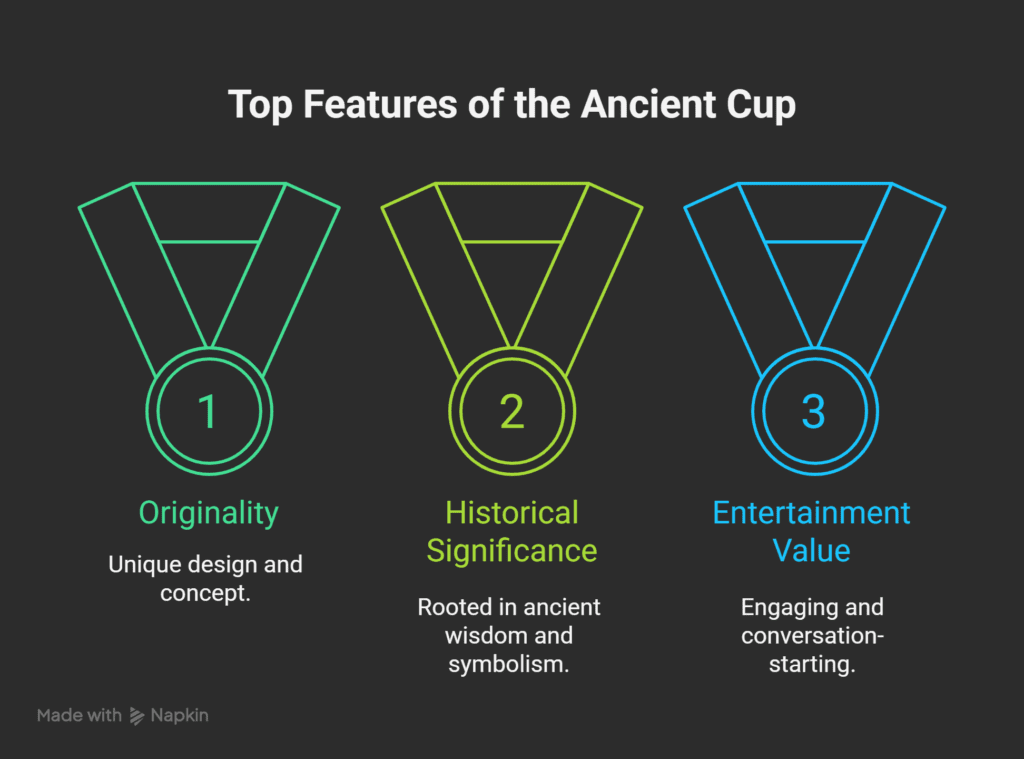Precision Medicine
AI allows doctors to customize treatment according to a person’s individual genetic makeup, lifestyle and medical background. AI, for example, can sift through enormous datasets to predict which treatments will work best for specific patients.
Cancer Treatment Selection: AI models determine which drugs are more likely to be effective for a type of tumor given its genetic profile.
Chronic Disease Management- Using AI applications offer personalized lifestyle and medication advice for chronic illnesses such as diabetes, hypertension, obesity, and others.

AI in Drug Discovery
The conventional process of drug development takes years and billions of dollars. AI speeds up drug discovery in the following ways:
- Modeling molecular interaction for potential drug selection
- Modeling clinical trials to limit the number of in-person tests.
- Just recently, AI-enabled research helped drive COVID-19 vaccines to market at unprecedented speed.
AI-Powered Robotic Surgeries
AI-powered robotic systems are improving surgical accuracy while also reducing human barriers like hand tremors. These systems make room for minimally invasive procedures, resulting in:
- Shorter recovery times.
- Reduced risk of infections.
- Greater surgical accuracy.
Robotic-assisted surgery is already used for knee replacements and laparoscopic surgeries, with promising results.

Artificial Intelligence in Telemedicine and Remote Healthcare
Artificially Intelligent chatbots and virtual health assistants are increasing access to medical advice by:
- Always-Available Health Consultations by Symptoms
- Supporting doctors for case triaging and simple follow-up
- Enabling remote patient monitoring to relieve pressure on healthcare establishments
Various companies like Babylon Health and IBM Watson are developing AI-powered telehealth services that offer a convenient and economical way to receive health care in remote locations.
The advancements of AI tools provide not only new opportunities but also new challenges and ethical dilemmas.
Artificial Intelligence in Telemedicine and Remote Healthcare
Artificially Intelligent chatbots and virtual health assistants are increasing access to medical advice by:
- Always-Available Health Consultations by Symptoms
- Supporting doctors for case triaging and simple follow-up
- Enabling remote patient monitoring to relieve pressure on healthcare establishments
Various companies like Babylon Health and IBM Watson are developing AI-powered telehealth services that offer a convenient and economical way to receive health care in remote locations.
The advancements of AI tools provide not only new opportunities but also new challenges and ethical dilemmas.

Future of AI in Healthcare
There are a number of developments that are making the future of AI in healthcare bright, such as:
- Early disease prediction models powered by AI.
- Wearable health technology integrated with AI and real-time health monitoring.
- How the combination of AI and blockchain be used to secure patient data, streamline electronic health records, etc.
- AI has the potential to transform health care and to make health care delivery more efficient, accurate and accessible to everyone as it continues to develop.

Conclusion
With the use of AI, healthcare is transforming through better diagnosis, customized treatments, and the generation of efficient medical care. AI in medicine is still a hypothesis. From early disease detection to improving surgical precision, the potential impact of AI in medicine is transformative. Nevertheless, ethical concerns and regulatory systems should progress in parallel with these technologies to enable safe and equal access to healthcare services.
How do you feel about AI in healthcare? Will AI-powered diagnostics and treatments be the new normal, in your opinion? Comment with your thoughts and stay around for more AI in medicine updates!
Click this link to read more fascinating news about AI.
Click here to visit us on YouTube.







